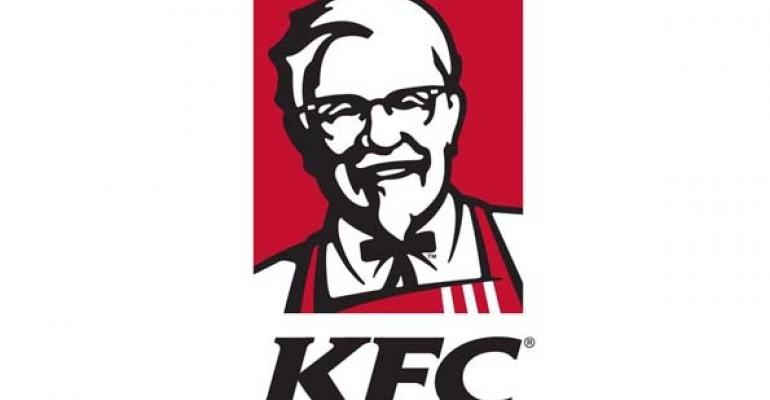KFC saw same-store sales in China drop 16 percent last month, and the chain is now facing a new round of avian flu concerns that broke out in China in early April.
Parent company Yum! Brands Inc. estimated that overall same-store sales in its China division declined 13 percent in March, signaling a long road to recovery. The decline at KFC was partially offset by a 4-percent increase at Pizza Hut Casual Dining.
The March results narrowed Yum’s same-store sales decreases to start 2013, including declines of 24 percent at KFC and 2 percent at Pizza Hut in the first quarter, which comprises only January and February.
RELATED
• Experts: KFC boneless chicken may have long-term potential
• KFC to launch boneless chicken
• More restaurant industry international news
Yum’s setbacks in its former China powerhouse result partly from negative publicity surrounding an investigation of Yum’s chicken supply by Chinese officials. The inquiry occurred after a mid-December broadcast by China’s national TV station of a report that several poultry farmers, including some that sold chicken to two Yum China suppliers, gave an excessive amount of antibiotics to their flocks.
To make matters worse, a new strain of avian flu that spread across China in the past week has had a significantly negative impact on same-store sales at KFC in April, Yum said in a filing with the Securities and Exchange Commission.
“Historically in these situations,” Yum said, “we have educated consumers that properly cooked chicken is perfectly safe to eat and we will continue to do so.”
Yum China had already rolled out a new marketing campaign that detailed the ways in which its 5,400 restaurants had purged more than 1,000 small producers of poultry from its supply chain, as well as other quality assurance investments. But securities analysts wrote in consensus in separate research notes that the marketing campaign had yet to meaningfully reverse Yum’s sales slide in China, even before avian flu cases in Shanghai were first reported.
“We had expected March comps to be better than the underlying February level,” wrote David Tarantino of Robert W. Baird & Co., “given that media coverage of Yum’s chicken supply issues appeared to have calmed down and given that KFC should have benefited from the new marketing campaign.”
Yum’s timeframe for recovery in China would probably be longer than initially projected, wrote Sara Senatore of Bernstein Research. March sales did improve sequentially from the February same-store sales decrease that she estimated to be in the high teens after a calendar shift, she noted.
“The recovery looks slower than what many investors had been anticipating heading into yesterday’s release,” Senatore wrote. “To stabilize traffic trends, Yum China ran television commercials that emphasized quality assurance on chicken. These appear to have had a positive effect, though the relatively modest sequential improvement in March points to the challenges of overcoming a prolonged PR crisis, particularly one centered on food safety.”
The significant effect avian flu concerns have had on April sales would only delay a full recovery further, she added, a point with which Andy Barish of Jefferies & Co. agreed on in a separate research note.
“The problem is, we don’t know how long the current avian flu scare will last,” Barish wrote. “Management has emphasized that it will take time for traffic to normalize after both events. Additionally, same-store sales could further deteriorate if more flu cases emerge, especially outside of the greater Shanghai area. Given these headwinds, we remain cautious and believe there is downside risk to our second-quarter estimate for China same-store sales of negative 10 percent.”
Louisville, Ky.-based Yum! Brands Inc. operates or franchises more than 39,000 KFC, Pizza Hut and Taco Bell restaurants in more than 120 countries. In addition to KFC and Pizza Hut Casual Dining, Yum also operates Pizza Hut Home Service, Little Sheep and East Dawning in China.
Contact Mark Brandau at [email protected].
Follow him on Twitter: @Mark_from_NRN





